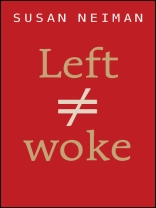If you’re woke, you’re left. If you’re left, you’re woke. We blur the terms, assuming that if you’re one you must be the other. That, Susan Neiman argues, is a dangerous mistake.
The confusion arises because woke is fuelled by traditionally leftwing emotions: the wish to stand with the oppressed and marginalized, to address historic crimes. But those emotions are undermined by widespread philosophical assumptions with reactionary sources. As a result, wokeism conflicts with ideas that have guided the left for more than 200 years: a commitment to universalism, a firm distinction between justice and power, and a belief in the possibility of progress. Without these ideas, the woke will continue to undermine their own goals and drift, inexorably and unintentionally, towards the right.
One of the world’s leading philosophical voices, Neiman calls with passion and power for the left to return to the ideals that built the best of the modern world.
สารบัญ
Introduction
1 Universalism and Tribalism
2 Justice and Power
3 Progress and Doom
4 What’s Left?
Acknowledgments
Notes
เกี่ยวกับผู้แต่ง
Susan Neiman is the director of the Einstein Forum. Her previous books, translated into many languages, include Learning from the Germans: Race and the Memory of Evil; Why Grow Up?: Subversive Thoughts for an Infantile Age; Moral Clarity: A Guide for Grown-Up Idealists; Evil in Modern Thought: An Alternative History of Philosophy; The Unity of Reason; and Slow Fire: Jewish Notes from Berlin. She also writes cultural and political commentary for diverse media in the United States, Germany, and Great Britain. Born in Atlanta, Georgia, Neiman studied philosophy at Harvard and the Free University of Berlin, and was a professor of philosophy at Yale and Tel Aviv Universities. She is a member of the American Philosophical Society as well as the Berlin-Brandenburg Akademie der Wissenschaften. Neiman is the mother of three grown children, and lives in Berlin.












